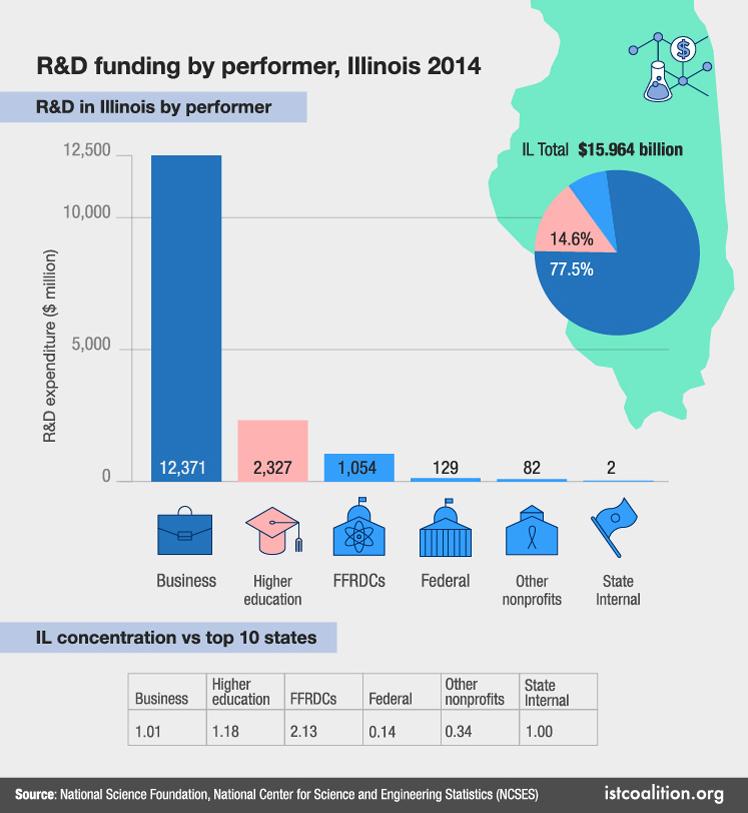Illinois Research Faces Critical Setbacks Amid Federal Grant Funding Declines
Sharp Decline in Federal Grants Threatens Illinois’ Research Landscape
Federal budget reductions have considerably curtailed grant funding for research institutions throughout Illinois, placing universities and independent research centers in a challenging financial position. This contraction forces many to downscale or halt pioneering projects, particularly in vital fields such as medical research, environmental studies, and technological innovation. The scarcity of federal resources is raising alarms about the sustainability of Illinois’ research ecosystem and its ability to foster future breakthroughs.
Key concerns voiced by the academic community include:
- Limited opportunities to launch new research initiatives due to shrinking grant pools
- Risk of losing leading researchers to states or countries offering more reliable funding
- Postponement or termination of long-term projects critical to both state and national priorities
| Institution | Percentage Decrease in Grants | Notable Impact |
|---|---|---|
| University of Illinois | 18% | Scaling back of biomedical research programs |
| Northwestern University | 22% | Reduction in graduate science scholarships |
| Argonne National Laboratory | 15% | Cutbacks in energy storage innovation projects |
Consequences for Innovation and Economic Development in Illinois
Illinois is at a pivotal crossroads as diminishing federal support threatens to undermine its status as a leader in scientific advancement. The funding shortfall jeopardizes progress in sectors like biotechnology, clean energy, and advanced manufacturing-industries that not only drive academic finding but also underpin regional economic vitality. Experts warn that these financial constraints could slow innovation and discourage top researchers from continuing their work within the state.
Economic experts emphasize the broader ramifications,noting that reduced grant funding could destabilize startups and small enterprises that rely heavily on research collaborations. The symbiotic relationship between science and commerce in Illinois means that funding cuts may lead to job losses and weaken the state’s innovation infrastructure. Specific impacts include:
- Diminished ability to attract and retain national and international research partnerships
- Decline in entrepreneurial ventures due to fewer opportunities for technology commercialization
- Widening economic gaps as underfunded institutions fall behind better-resourced counterparts
| Industry Sector | Projected Job Losses | Effect of Grant Cuts |
|---|---|---|
| Biotechnology | 1,200+ | Halted clinical trials and delayed product launches |
| Renewable Energy | 900+ | Suspension of pilot programs and innovation hubs |
| Advanced Manufacturing | 750+ | Reduced research collaborations and workforce training |
Calls for Enhanced State Funding and Innovative Financial Solutions
In response to the growing instability caused by federal grant reductions, Illinois’ research community is urging state leaders to step up with stronger financial support mechanisms.Advocates stress the importance of increasing state budget commitments and creating dedicated funding streams to buffer critical research projects from unpredictable federal budget changes.Such measures are essential to sustain the momentum of transformative studies that contribute to both local innovation and national competitiveness.
Proposed alternative funding approaches include:
- Issuance of state innovation bonds and establishment of research endowments
- Expansion of public-private partnerships to attract corporate investment
- Creation of emergency funds to provide rapid financial relief for vital projects
- Streamlining grant application and approval processes to minimize administrative delays
| Funding Mechanism | Expected Benefits | Projected Timeline |
|---|---|---|
| State Innovation Bonds | Immediate capital infusion for priority research areas | 1-2 years |
| Public-Private Partnerships | Enhanced collaboration and resource pooling | Ongoing |
| Emergency Research Fund | Rapid financial support to prevent project interruptions | 6-12 months |
Strategic Policy Initiatives to Stabilize Research Funding and Foster Growth
To mitigate the adverse effects of federal funding cuts, experts advocate for thorough policy reforms aimed at ensuring consistent and reliable grant support for Illinois researchers. Central to these recommendations is the establishment of multi-year funding commitments that protect projects from sudden budgetary shifts, enabling scientists to pursue long-term investigations without financial uncertainty. Furthermore, enhanced collaboration between state and federal agencies is encouraged to diversify funding sources and reduce vulnerability to political fluctuations.
Additional policy proposals include the creation of a dedicated reserve fund to provide emergency bridge financing during gaps between grant cycles. These initiatives are designed to preserve the integrity of Illinois’ research infrastructure by maintaining staffing, preventing laboratory shutdowns, and nurturing innovation pipelines critical to the state’s economic and academic success. Key policy recommendations gaining momentum include:
- Multi-year grant programs: Ensuring stable funding over extended periods
- State-federal partnerships: Coordinated efforts to expand funding diversity
- Emergency reserve funds: Rapid-response financing to bridge funding gaps
- Obvious allocation processes: Clear and equitable criteria for distributing funds
Conclusion: Urgent Action Needed to Preserve Illinois’ Research Excellence
As federal grant funding continues to decline, Illinois’ research community faces an uncertain future that threatens to disrupt critical scientific advancements and economic growth. The current funding landscape endangers ongoing projects and risks diminishing the state’s role as a national leader in innovation. Stakeholders are calling for immediate and decisive measures to restore funding levels and support the essential work of researchers whose efforts drive progress in health, technology, and industry. Without prompt intervention, Illinois may lose its competitive advantage in the rapidly evolving global research arena.





